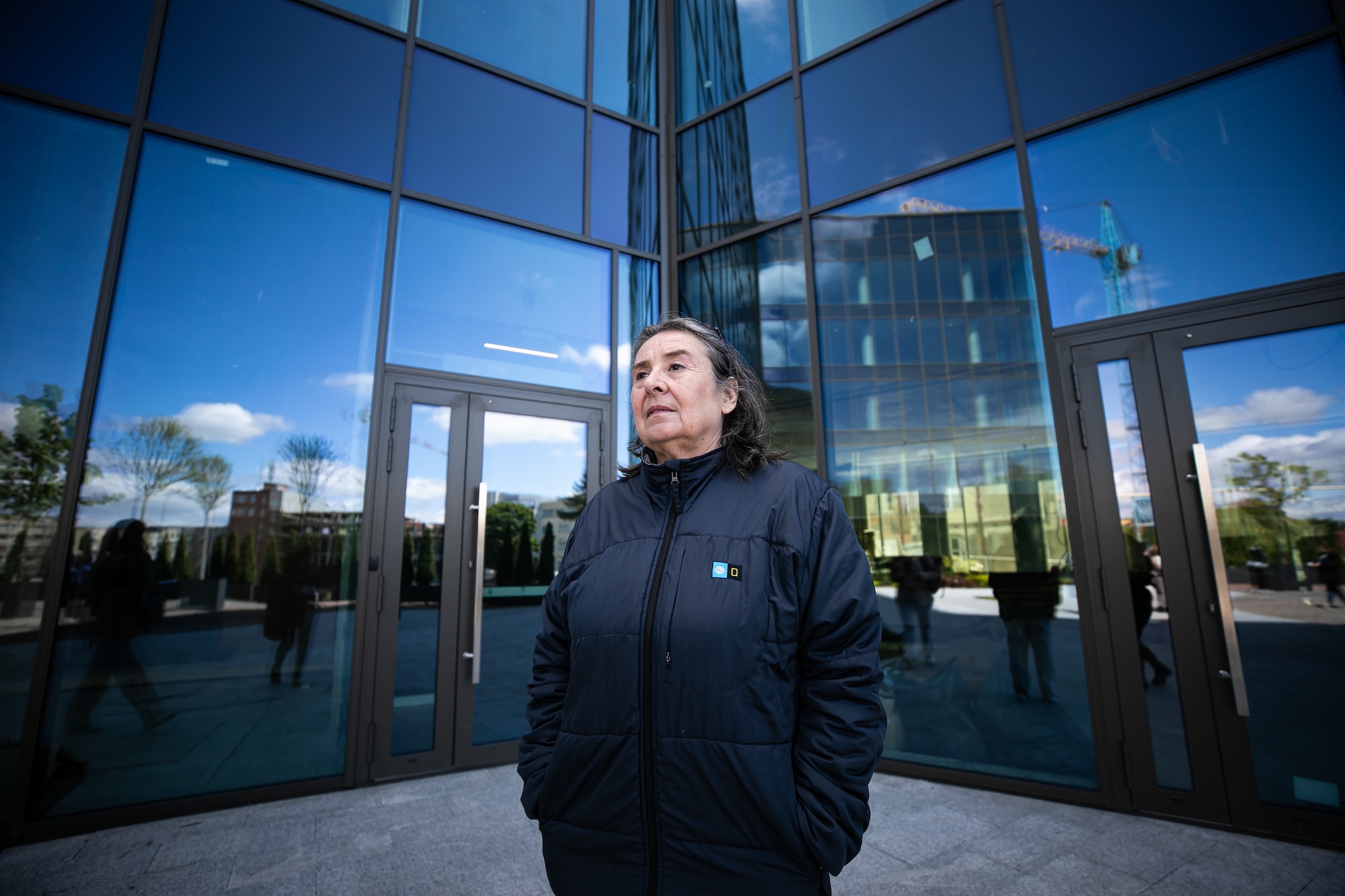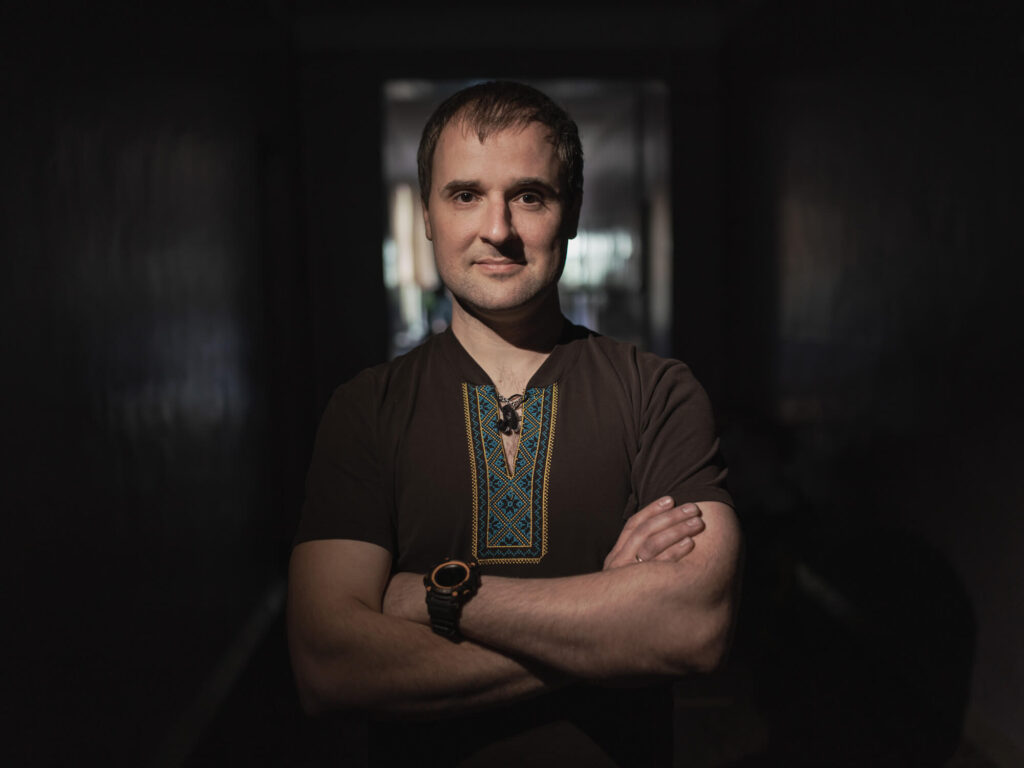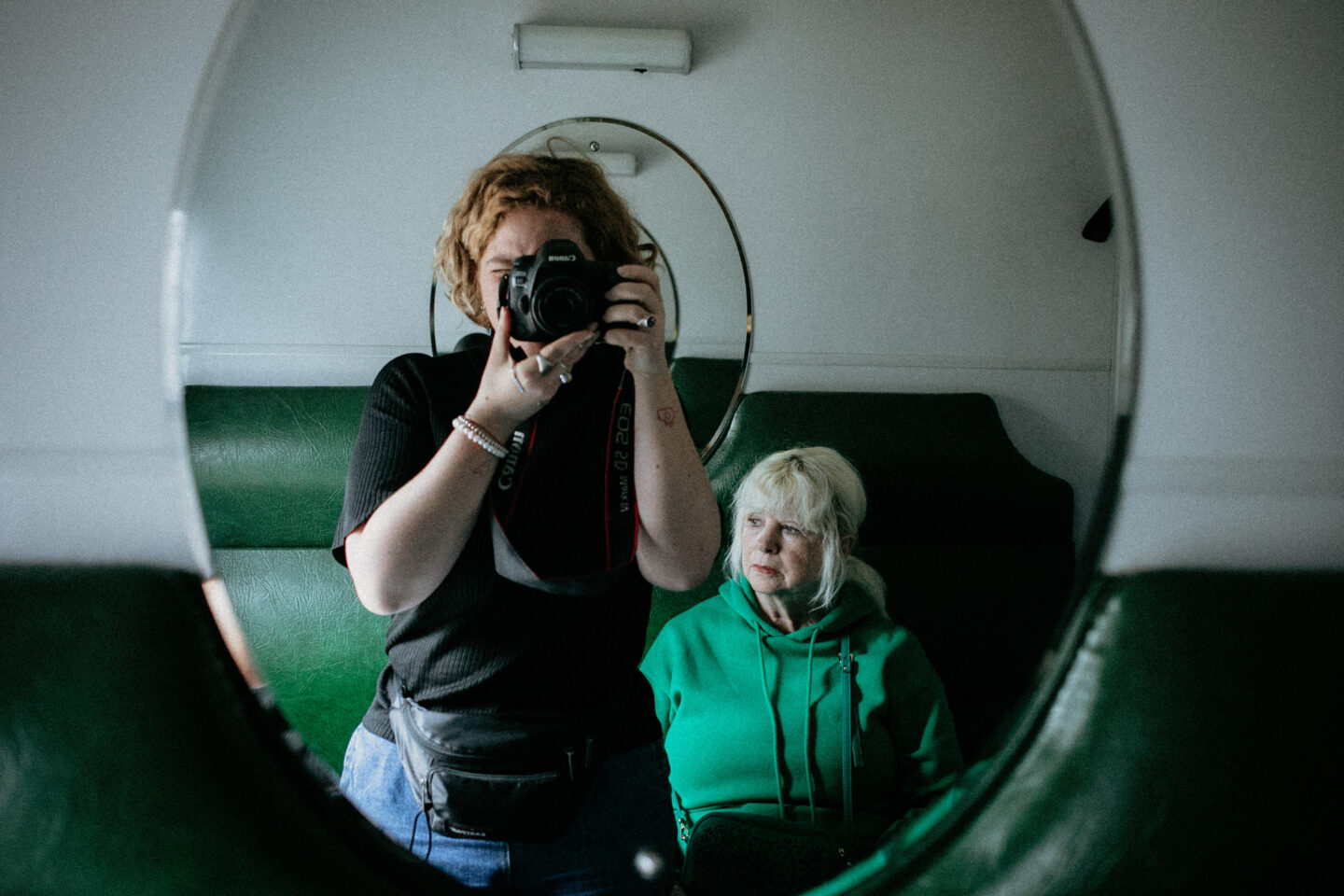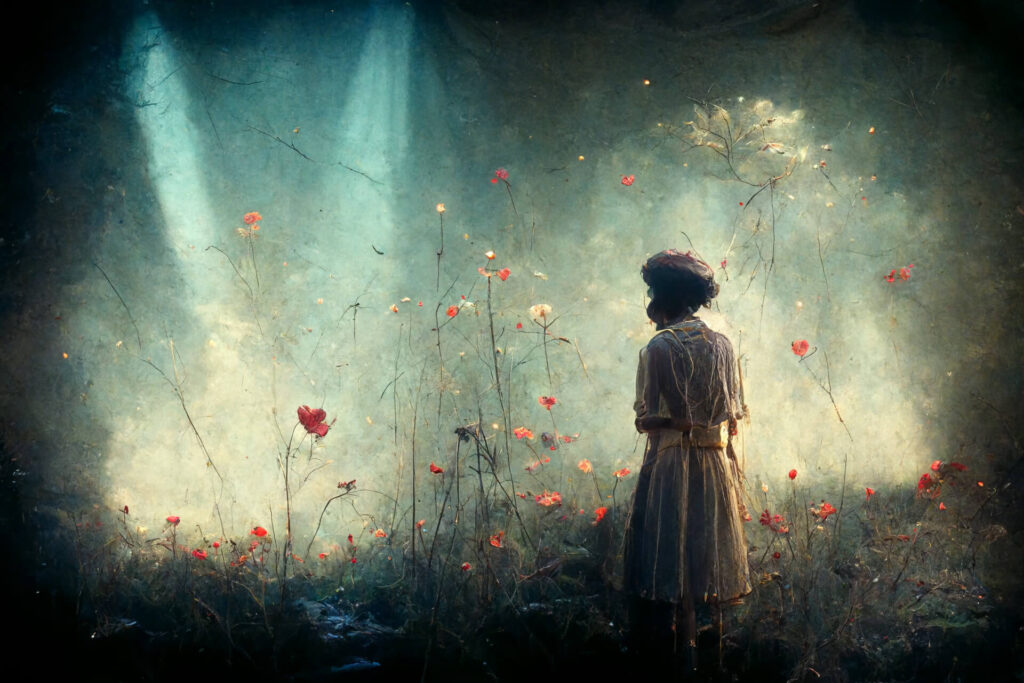Aida Čerkez covered the Bosnian war for the Associated Press for more than three years, living in a besieged city where access to running water, electricity and communication with the outside world was scarce. She didn’t know if anyone in the world was reading her reports, but Aida believed that reporting on the crimes she was witnessing meant not letting anybody pretend they didn’t know about them. So, she continued.
In this interview, we discuss recognizing the signs of an approaching war and why it is essential to continue writing about crimes when the world appears indifferent to suffering.
§§§
We recorded this conversation at LMF 2025, one of the largest media conferences in Central and Eastern Europe.
§§§
Tell us about the beginning of the Bosnian war — did you feel it coming? Did you prepare for it?
It was a Thursday when Russian troops crossed the Ukrainian border. Two days earlier, we were holding editorial meetings, and I told my colleagues that the Russians were going to invade, that they were going to attack Ukraine. And they replied, “No, no, they wouldn’t dare. This is the 21st century.” I realized that in 1992, I thought the same thing. It seemed so far-fetched. But what were they doing at the border? They said, “Military exercises.” At the border?
My colleagues didn’t want to accept it. “No, no, no. This can’t be true.” I had the advantage of having gone through a similar situation — I recognized the movement patterns.
I wasn’t even angry with my colleagues. I didn’t think they were stupid, because I remembered what I was thinking when heavy artillery was deployed around Sarajevo and aimed at the city. The army told us, “This is a military exercise. They are training to defend the city in case of war.” Training with weapons pointed at the city? But it was very hard to believe at the time that an attack was looming.
If you had told Americans a year ago that Trump would win again and do what he is doing now, they wouldn’t have believed you either.
People always think that such things can happen to others, but definitely not to them. I call it the smoker’s syndrome.
Every smoker in the world knows that smoking will likely cause lung cancer — it’s not guaranteed, but you become a candidate. Yet people still smoke because they think, “Yes, it’s true, but cancer will happen to someone else, not me.”
So in 1992, I was one of the people who, even as I listened to the sounds of bullets being shot, did not believe that it was really happening to us. It took me months to realize that it was actually happening and that it wasn’t just some isolated incident. Then you think, “Okay, but someone will sort this out soon, and it will all be over in a few days.” And so it went on for months. Now I realize how stupid that was. The writing was on the wall.
You either have to be completely short-sighted or refuse to see reality when you convince yourself that war is impossible. And even then, you are paralyzed — for example, you know that you should probably stock up on canned food, but you don’t do it because the feeling of “this can’t possibly be happening” prevents you from doing so. I noticed that many Ukrainians felt the same way. Two days before the full-scale invasion, I was advising my colleagues on what to buy, like candles and other items I learned to be useful during the siege of Sarajevo. They still didn’t want to believe me, and I wasn’t even angry with them because I used to be just like them.
What if I had known and been aware of what would happen? Would I have had the strength to accept reality? I would have at least evacuated my baby. I didn’t do it — I evacuated him seven months after the war had started. So I fully understand this state of denial.
Did you experience moments of despair during the war? When it has been going on for so long that there seems to be no end in sight.
There was one particular case that illustrates a crisis like this. It happened two years after the outbreak of the war, in 1994. It was the 80th anniversary of the assassination of Archduke Franz Ferdinand, which started the First World War. We wanted to make a report that would tell this story: “80 years ago, the First World War began here, followed by the Second World War, and now a third war is going on in Sarajevo.”
For this report, I found a witness — a very old man in his nineties who witnessed the assassination of Franz Ferdinand. I went to talk to him. He couldn’t walk and was hard of hearing. I had to shout my questions to him, and then he would shout his answers back to me. This went on for two days.
In these two days, we became close — we’d spend the whole day together as he told me about his life. I realized that he knew everything about all the previous wars, but he didn’t know anything about what was happening now. And I knew only about this war, but about the wars he went through, I only learned from school textbooks. So the two of us combined had the complete knowledge.
I also realized that the man lying in bed was born in the house where I was interviewing him. He probably died later in that same bed.
He has never left or lived anywhere else. However, throughout his life, he ended up living in five different countries. Such was the tumultuous history of Sarajevo and the Balkans.
At the end of the second day, he started asking me questions: “Why are you doing this? Do you have someone? Are you married?” I told him that I was divorced and had a small child, that my three-year-old son was a refugee, living in Germany with my mother, and that I was here covering this war. I told him that I was considering joining them because, at the beginning of all this, I thought that if people on the outside knew what was happening here, they would do something to stop it. It took me two years to realize that people knew everything.
At the time, I thought they didn’t care. But now I know that they did care — they just didn’t know what to do. For example, I care about what is happening in Ukraine. But I don’t know what to do. It is this helplessness that kills us, the outsiders, more than what we observe. You sit and watch everything unfold on the screen, and you can’t do anything as one individual — there is no mechanism. I can send some humanitarian aid, but what will that accomplish? That you at least won’t be hungry when you die? It is this helplessness that discourages people. Someone will decide to change the channel, not because they are not interested, but because they cannot stand to see the injustice and crimes unfolding before their eyes and the inability to do anything about it.
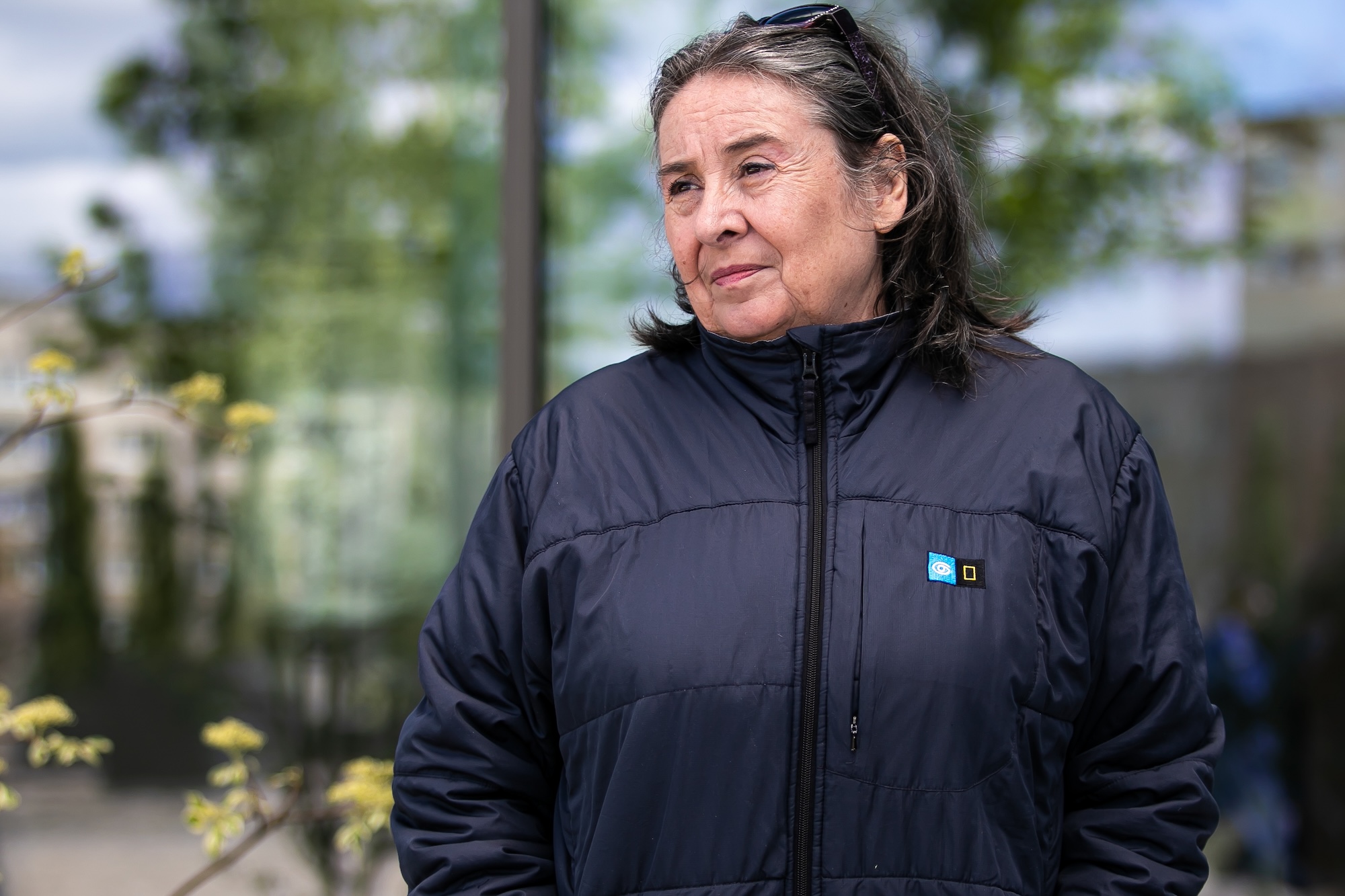
So, I told this old gentleman that I realized that I was not changing anything with my reporting. I had thought that journalism would change something, but I felt like I was screaming into the abyss, and I didn’t want to do it anymore. I will leave, never come back, be a refugee for the rest of my life and just focus on raising my child.
He listened to me complain and then looked at me and said: “I understand that, but look. After World War II, I talked to some people and asked them: “How did you feel and what did you do the night they took away your Jewish neighbours, the ones you never saw again?” And everyone had the same answer: “I didn’t know.” People did not know where those people were being taken and whether they would return in the morning. What if they went somewhere to visit relatives? They did not know about the concentration camps.”
He said that everyone had the same answer. Then he added: “Maybe they didn’t know because no one reported it. We found out about the concentration camps when the Americans and the Russians discovered them. That’s when we realized where all those people were being taken. So we did nothing because we didn’t know.”
He also said: “I think you should continue your work, because one day, when all this is over, no one will be able to say, ‘I didn’t know.’ You will turn what used to be a perfect excuse for inaction into a choice. Yes, you knew, you just didn’t want to do anything or weren’t capable of doing anything. But don’t tell me that you didn’t know.”
So, I was turning this “I didn’t know” into a lie. I reached the conclusion that I should lower the bar for myself — I started working as a journalist, thinking that I could help stop the war.
I lowered the bar and recognized that now my job was to take lies out of the equation. I was going to shed light on everything that was going on so that no one could ever say, “I didn’t know.”
That was enough to motivate me, and I stayed. It was my biggest moment of crisis, and that man — a railroad worker, not a philosopher — helped me understand how important journalism is, maybe not for the moment I was living in, but for humanity as a whole.
Where did people look for a sense of normalcy in besieged Sarajevo?
The desire for normalcy keeps you sane. Unlike Ukraine, we had no water or electricity for three years. The water came and went, but for most of the time, we had no amenities. There was no Internet. So you’re blind — you have no clue, maybe the rest of the world doesn’t exist anymore, and you just don’t know it yet.
You try to imitate normalcy to maintain your sanity, a kind of mental hygiene. For example, women who have never worn makeup have started to do so because it is an element of normalcy. Why would you wear makeup in the middle of a war? You don’t even have proper clothes to wear, and you sneak around town looking for firewood. This is not an occasion for makeup. But they wore makeup because it gave them the illusion of some kind of normalcy.
Theaters were an important factor in maintaining collective sanity.
People who had never been to the theater started going during the war because it allowed them to sit there and pretend that everything was fine for two hours.
We realize that by consuming culture, we distance ourselves from the animals that are attacking us. We prove that we are not reduced to eating and drinking like animals — yes, you’ve spent the whole day searching for food, but you are also a human being.
People sat in basements and read books out loud, and everyone listened. For some, those may have been the first books they’d ever read. Or they listened to classical music — for example, in the apartment building next to me, there were two piano teachers who gave concerts for their neighbors, and people who didn’t even like classical music also attended because they provided a feeling of normalcy.
Imitating normal life is a mechanism for maintaining mental hygiene. You prove to yourself that you are still human. And what allowed the city to remain as healthy as possible was culture. Culture did not die. A friend of mine organized the Sarajevo Film Festival, which still exists today — it was born during the war. A foreign journalist asked him: “Why a film festival in the middle of a war?” and he replied: “Why a war in the middle of our film festival?” For me, philosophically, that posed an important question: what is more important?
So I understand imitating normalcy, as it is part of protecting yourself from going insane.
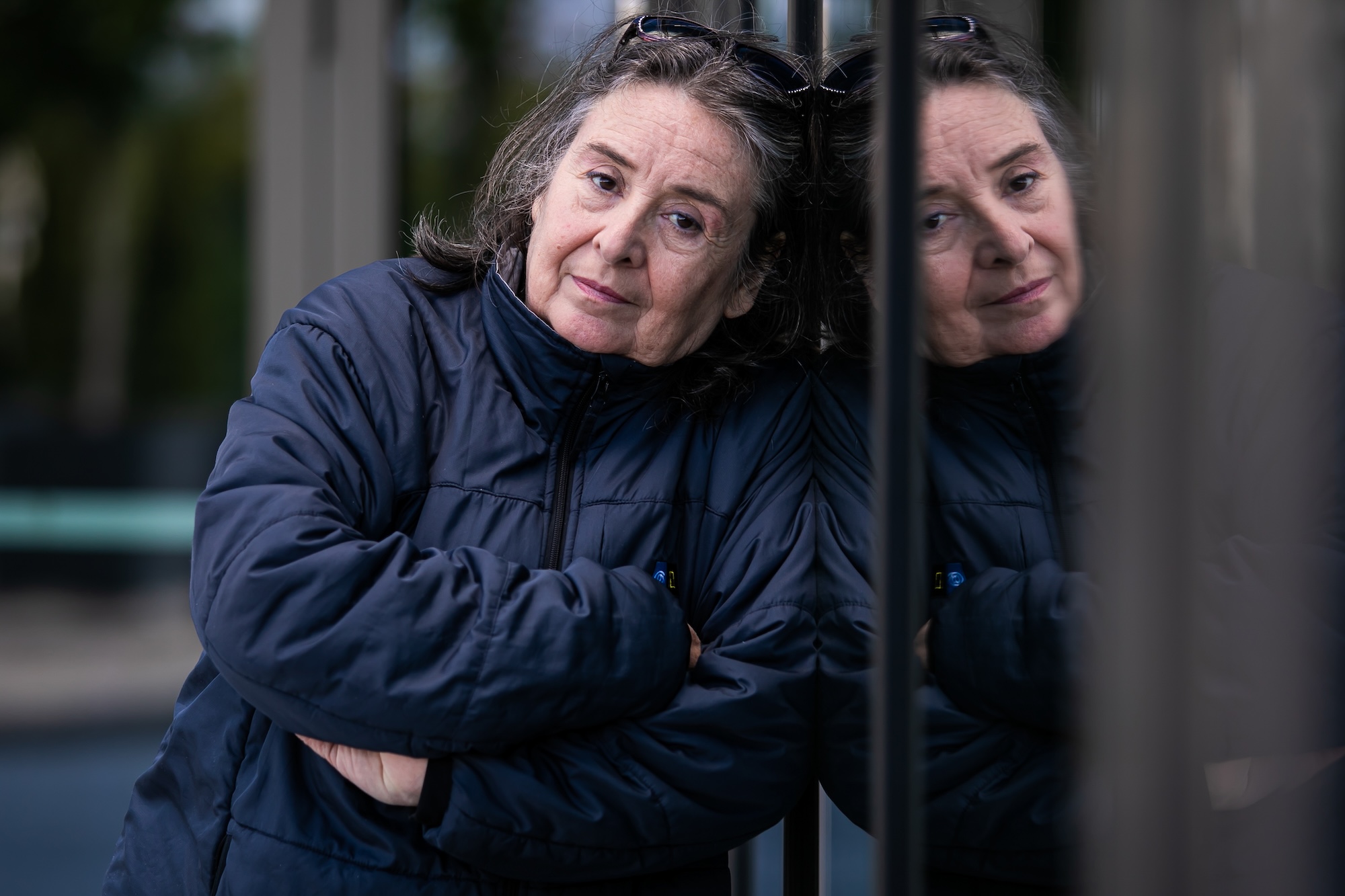
You wrote mainly for the outside audience while working for the Associated Press. In her book “Regarding the Pain of Others,” Susan Sontag notes that in the current times, only the bloodiest stories get people’s attention, and when bloodshed becomes something ordinary, even that doesn’t work anymore. Did you ever feel that your audience became indifferent to the suffering you wrote about?
I was lucky to work before the Internet because I didn’t know whether people were reading my stories or not. I imagined that they did. There was no data to prove to me that they actually did. So you just don’t ask yourself those questions, and that’s for the best. If you write about atrocities and then you see that no one has bought the issue and no one is reading it, that must feel terrible. But fortunately, this did not exist in my time. I thought we were on the front pages, and we were. It was the first war in Europe after World War II, and it was still a shock.
However, what was the alternative? Not to report the atrocities? Even if you are disappointed with the lack of attention or lack of action after your report, you just think, what was the alternative? Not to cover it at all? Then you join in with those who do nothing. You don’t write about it and thus give them their excuse: “We didn’t know.” So you just keep working. One day, someone will draw a line under all this — at least the courts will. In my time, there were no courts. The UN war crimes tribunal was created during the Bosnian War. We had no illusions about the justice system, and I couldn’t imagine that anyone would ever be held accountable, but at least the courts would have to take my work into account. I wrote it down. It is recorded. I have all the evidence.
It’s important never to lie. You don’t need to lie, because reality is pretty horrible as it is, and you don’t need to add anything to it. It is so bad that some people might not even believe that it’s really happening. So, just continue your work and don’t fall into despair.
How can observing the pain of others mobilize people and governments to take a proactive stance of support and solidarity?
Always ask yourself: What did you do when you watched the news about the Gulf War on TV? What did you do during the Arab Spring? What did you do during Vietnam? What could you have done?
That’s how the people not directly affected feel most of the time. If people are honest with themselves, they will say, “I changed the channel.” Not because they didn’t care about what they were seeing, but because they did. That’s why they changed the channel. It was because they felt helpless. They felt that one voice meant nothing, that there was no mechanism, that nothing could be done.
Frankly, we as human beings have to find a way. Going to demonstrations is one of the things you can do. You can write to your politicians and say, “I don’t want to see this on my TV anymore. Are you going to do something about it? Because tomorrow it might happen to me, and you collectively are not doing anything about what is happening to them.”
You can try to overcome helplessness with some action. Make a donation for humanitarian aid if there are no other options. I hate it — humanitarian aid only prolongs people’s suffering. “Here’s a sandwich for you while they kill you.” But it’s at least something. It’s better than sitting around doing nothing.
But even in democracies we still haven’t found an effective mechanism for individuals to take action when they witness human suffering elsewhere. Unfortunately.
Going back to your statement that we should do our work so that people can’t say they didn’t know. If someone has strong ideological beliefs about reality, they are unlikely to be convinced by our stories. This happened in history before — the Germans did not believe that the photos from Auschwitz were real. Now we are seeing the same thing with the events in Ukraine: the Russians conducted a whole campaign claiming that the atrocities in Bucha were staged. What can make certain images, videos or reports so powerful that they break through ideological barriers?
There will always be people who don’t want to believe.
Sometimes reality is so cruel that people choose not to believe it because it is too painful. When you are told that someone you love has just died, your first reaction is denial. You say “no” because you don’t want it to be real.
So, there are people who will close their eyes and refuse to learn anything. They are the majority of those who are in denial — they deny the truth because it is too horrific.
Then there are the malevolent people who deny the reality for a certain reason. They don’t want you to tell the truth to the world. However, most people deny it because it’s just too horrible to believe.
There’s not much you can do about it. People are not going to change. You can try to reach those who are not completely convinced — you can work with them. Don’t even try reaching those who are in denial, because you will never convince them, and the more you try, the more they will dig in their heels. They will resist more and more because they will perceive every effort you make to change their minds as a conspiracy.
So, just leave them alone. Such people will always exist, and you should ignore them. Try to reach the rational ones because they are the only ones who will be able to take any action. You’ll never convince everyone that you’re right.
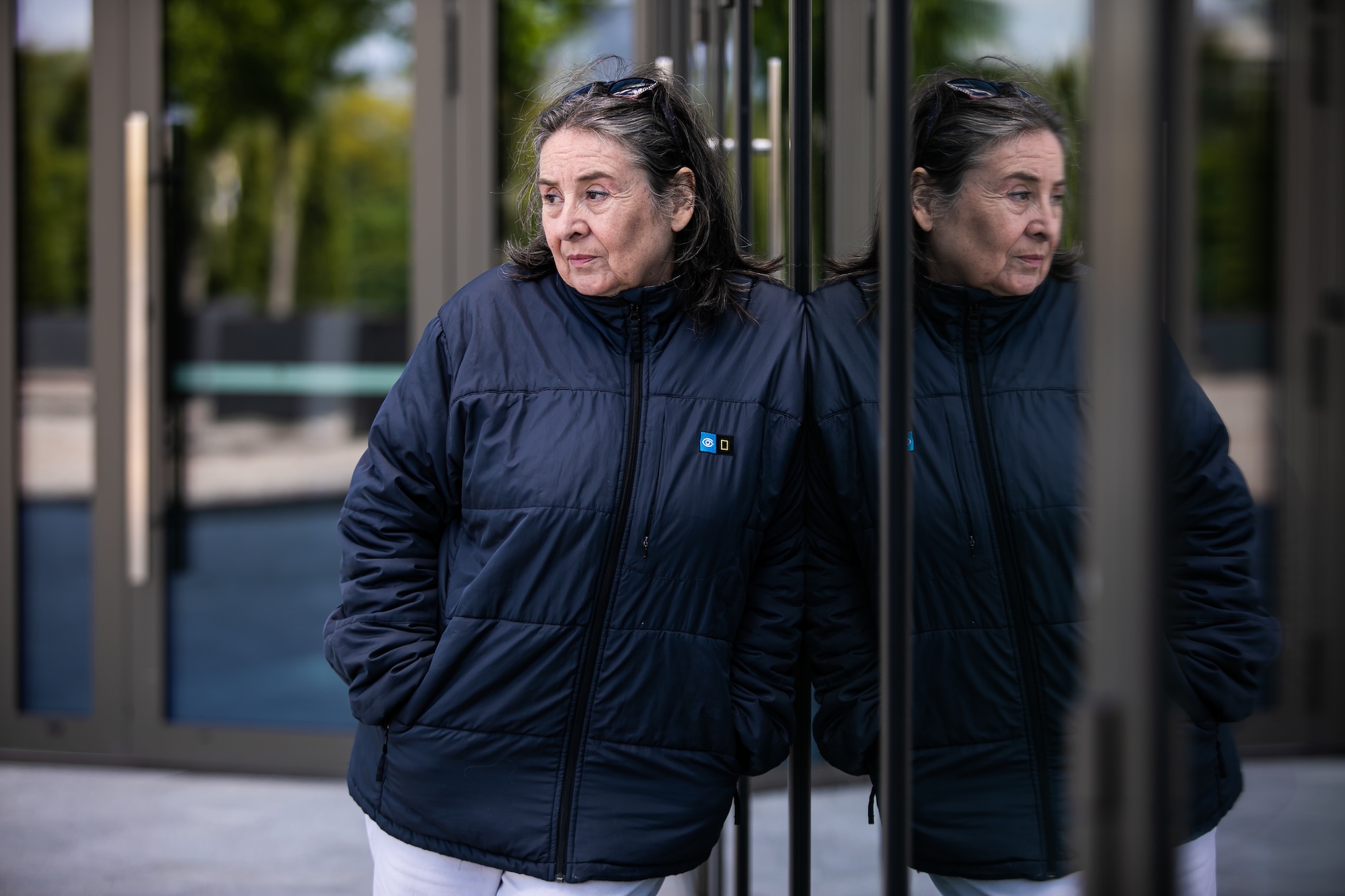
How does geographical and cultural distance from the events affect our sense of solidarity? Can you share stories from the war years about how different audiences responded to your stories?
It’s a question of empathy and whether you can see yourself in the victim. There’s a simple test for this: write a short news story about a woman who was raped by soldiers, but set the story in Africa, in the Congo. The woman’s name could be something like Natutuga, and she was raped by some passing Janjaweed soldiers. Then take that story and just change her name to Olena or any other name typical for Ukraine or your neighboring countries, and see how that resonates with you.
It is difficult for you to identify with someone whose name is unfamiliar. If the victim’s name is something you recognize, you will be more concerned with what happened to them.
Geography has a lot to do with that, too. For some reason, people are more concerned about what happens to territories and people within a radius of about 1000-2000 kilometers around them. Put a dot near Kyiv and then draw a circle of 1000 kilometers— that’s what people care about. The people inside the circle would be the ones they can identify with. Outside of that is some other, unknown world.
The Americans are a good example of this. Take Idaho and make a big circle around Idaho, about 1000 kilometers wide, and everything within that range, more or less, will be culturally Idaho. So, of course, people from the Midwest can’t identify with anyone else in the world but themselves. But this is not specific to them, it happens to everyone. In the case of Europe, the difference is that it’s very compact. If you put your finger on Vienna and make a circle around it, you will find that there are many countries, cultures and languages that someone living in Vienna would care about.
But everything beyond that is elsewhere. The names are strange. The culture is different. Maybe it’s the way they do things there. “They kill women in Saudi Arabia for no reason — maybe it’s their culture.” You don’t feel the same sadness for these victims as you do for the people who are around you geographically. Unfortunately, that’s just how it is.
We don’t even know what is happening in Asia. We have no idea. Tibet — we have a vague idea about it, but do we have any emotional connection with it? Unlikely. People there have unfamiliar names and a different eye shape, and there’s not much chance we’ll identify with them.
Let’s talk about the memory of the Bosnian War and ethnic cleansing in your country. What is the place of this memory in the collective culture or public space now?
It is very present because the Bosnian war ended without a winner, so everyone thinks they are the winners, and that is why we still have political problems. But there have been steps to deal with this past, the most important one being the Hague Tribunal. I think it was thanks to this tribunal that there have been no cases of revenge after the war.
The tribunal meant that revenge was not, “You killed my family; now I’m going to kill yours.” Revenge is now “I will take you to the Hague.”“I will go all the way to the Hague” is now a proper threat. And the Hague is the embodiment of horror for one side and of hope for the other. So it is very important that the court deals with this and that the court and law enforcement agencies have a monopoly on violence. If you don’t have that, then people will take matters into their own hands, bypassing the courts, and there will be chaos.
Another thing that we’re lucky to have gotten is the International Commission on Missing Persons (ICMP). It was established in Bosnia and has now become an international body that searches for missing persons. It was in Bosnia that they developed the technology to identify people through DNA on a massive scale. This was not possible before Bosnia. There were mass graves all over the world with thousands of people in them. How could you identify them? Now it is possible, and that came from Bosnia. Now it is used everywhere and it is a game changer.
Usually, in conflicts, sides use history to justify their current crimes: “You did this to us during World War II. You killed one million of us.” Maybe — we don’t know. Maybe we did, maybe we didn’t. We could argue about the numbers because no one had established exactly how many people were killed.
Now we have ICMP. They will establish by name that 1384 people were killed in this massacre or another. Here are their bodies, identified through DNA analysis. It’s hard to argue with that. When this figure is established, it can no longer be manipulated. “You killed a million of ours” — “No, we killed ten of yours.” And that’s it, you can no longer use it as an argument in future conflicts to justify the atrocities you are planning to commit.
I think that ICMP and DNA identification of victims is one of the most important steps forward in the science of peace.
Do you feel that people are still rethinking this trauma in contemporary cultural processes?
There are intentions to rethink, but young people are no longer interested in it. They want to live their lives. They don’t want to be bothered by the past, and they don’t even want to hear about it. They say: “Don’t poison me with your problems. I have my own.”
This is both good and bad because you have to learn from your history. But if the history is so ugly that young people don’t even want to hear about it, then it could happen again, because you failed to take a certain historical event and turn it into a lesson. When lessons are not learned, mistakes are repeated.
So you have to find a balanced approach to make young people aware of historical events, but not to burden them too much, because they just distance themselves: “You’re spoiling my youth with this crap. I’ll go back to TikTok and music.” So, you have to be very careful about how you communicate with the younger generation.
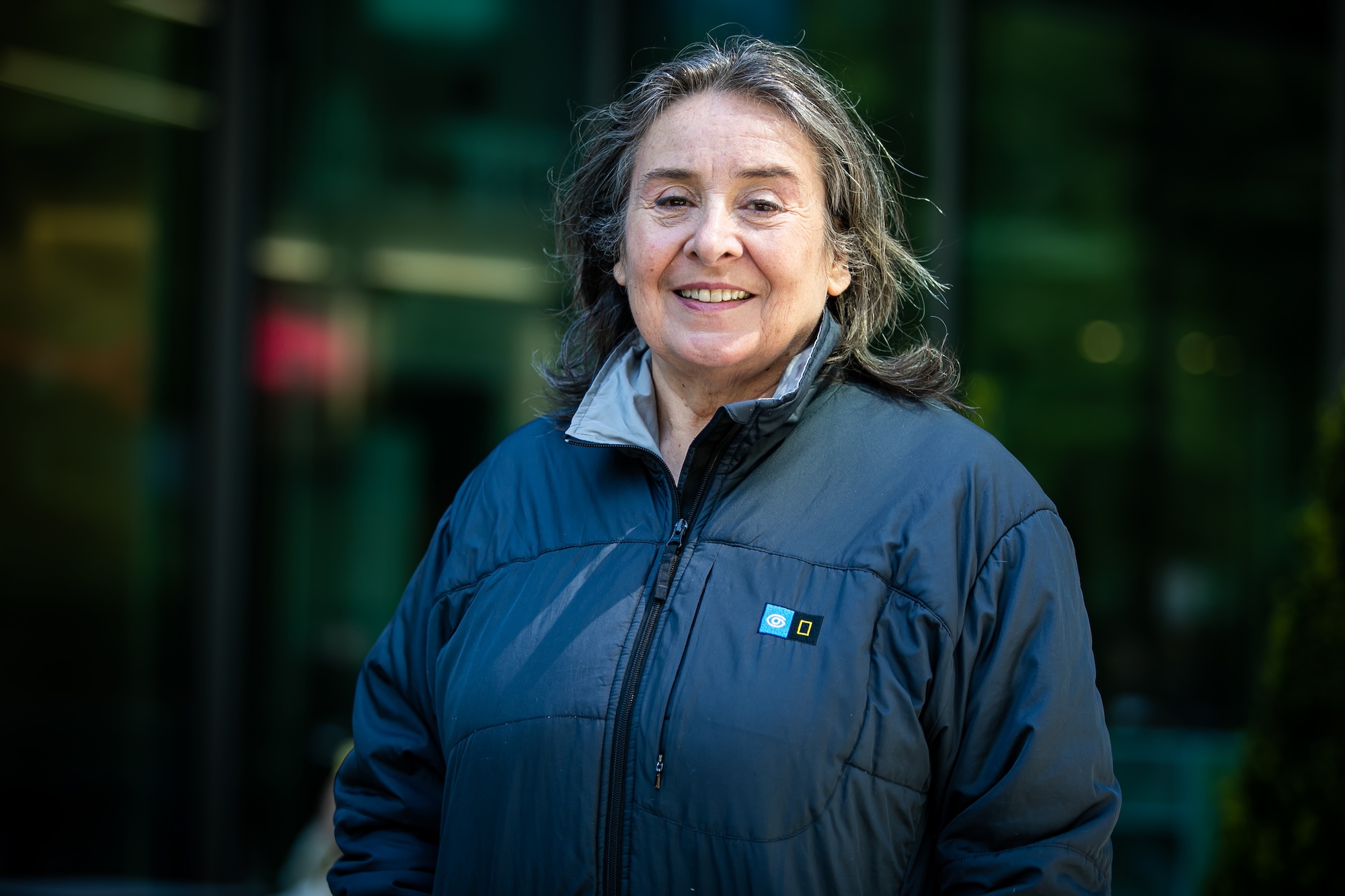
What does justice mean to you after your experience in the Bosnian war?
For me, justice depends on expectations. If you lost your child, justice would mean getting your child back. That is impossible, although it would be justice. But you can try to achieve as much of it as possible and, for example, see the perpetrator go to prison.
For me, that’s stronger justice than going out and killing the criminal. Death is an easy way out. He won’t even feel it — maybe for five minutes. That’s not enough for me.
He should go to prison and think about what he’s done for the rest of his life. Murdering him is not justice.
I don’t want him to feel the consequences only for the three seconds before I shoot him. And I wouldn’t be able to shoot him anyway, so I can’t dole out justice.
For me, justice is a proper international judicial procedure, so that nobody could say: “The winning side sent the defeated side to prison.” No, it should be the International Criminal Court or the International Court of Justice, where representatives from all over the world sit, look at the case and decide: “You were wrong. You did this to them. We as humanity are sending you to prison for what you did to that person.” This means much more than a national court, and for me, this is the ultimate justice.
Also, if possible, the legacy of the crime needs to be corrected. It’s not enough to just send the perpetrator to prison — if he occupied territory, he has to return it. If he stole something from you, he has to repay you. For me, this is the strongest justice you can get in today’s world, and you are much more likely to achieve it now than at any other time in history.
When should we start talking about the search for justice, about post-war reconciliation and recovery? Isn’t it crazy to talk about this when the war is still ongoing?
No, it’s not crazy. It is never too early. You have to understand that many people on the other side (maybe even the majority) don’t know what’s going on. They have been misled. On the eve of the war, Russia used the media to prepare its population to see you as villains and subhuman, because only in this way, after this preparation by the media, could they be able to mobilize people to fight for them. Nobody wakes up in the morning thinking: “Oh, let’s attack Poland.” It takes years of preparation before you actually attack, and it necessarily includes brainwashing your own people. So when I look at the Russians and how they are reacting to all this — the ones who support the war — they are just repeating what the media has fed them.
When you think back to those years of war, is there anything that makes you think, “Oh, I wish I had done this differently”?
Of course, I always think that. It’s like after arguing with someone, when you go home and wake up in the middle of the night, thinking, “I should have said this or that.” But you didn’t. It’s easy to be right in hindsight.
There are many things I would have done differently. There are some stories that I didn’t write which I now consider very important, but I somehow missed them at the time. I would have liked to be more educated about war crimes. There were things I saw but didn’t realize were war crimes because they seemed too ordinary. Other than that, I think I did quite well. I don’t really regret anything.
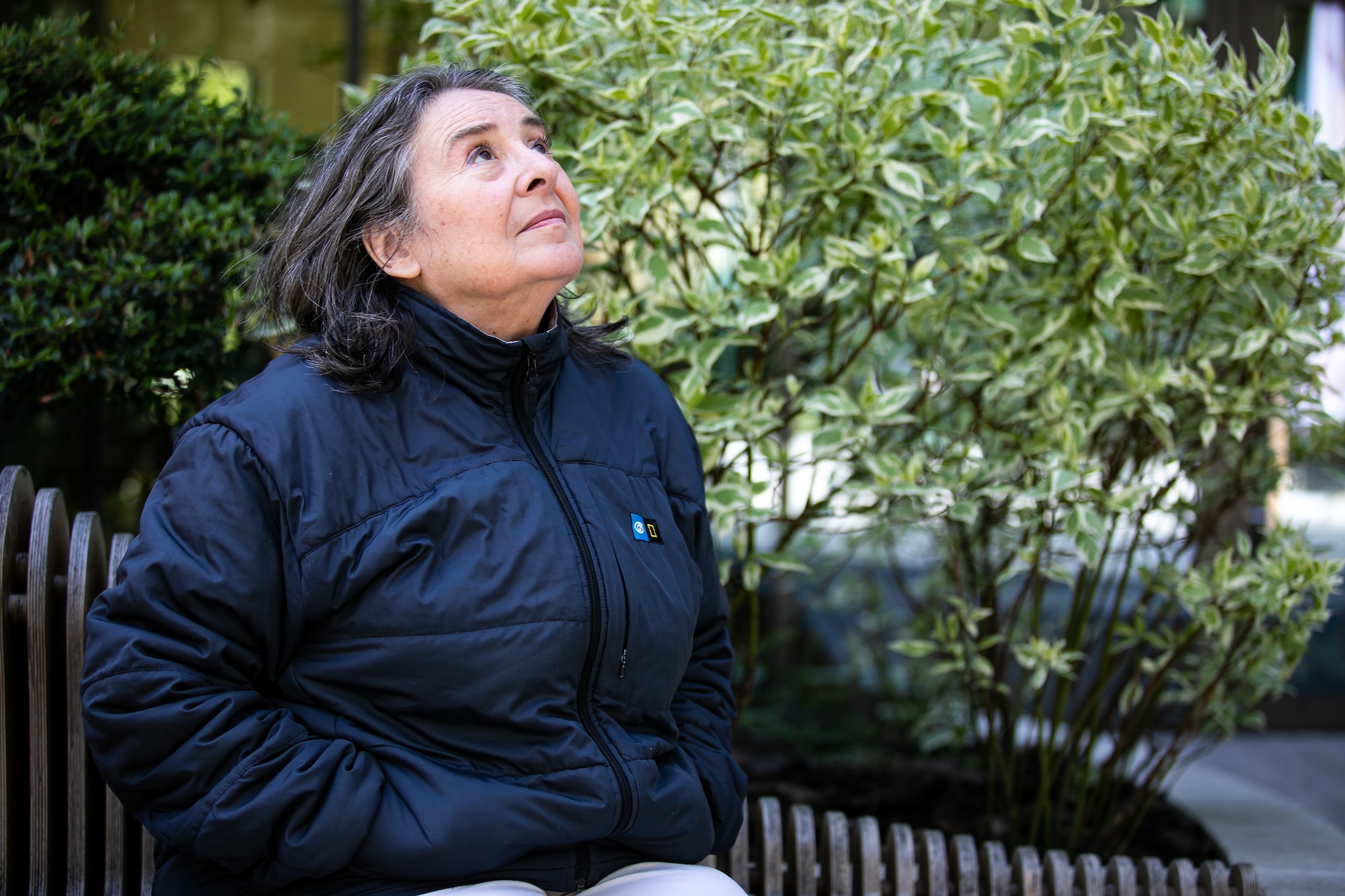
What book or movie would you recommend to people who know very little or nothing at all about the Bosnian War?
The movie“Quo Vadis, Aida?” There is also a six-episode BBC documentary series called “The Death of Yugoslavia.” If you want to understand what really happened, be sure to watch it, as well as the Oscar-winning movie “No Man’s Land” from twenty years ago. This will be enough to get you started.
Translated from the Ukrainian by Liubov Kukharenko
